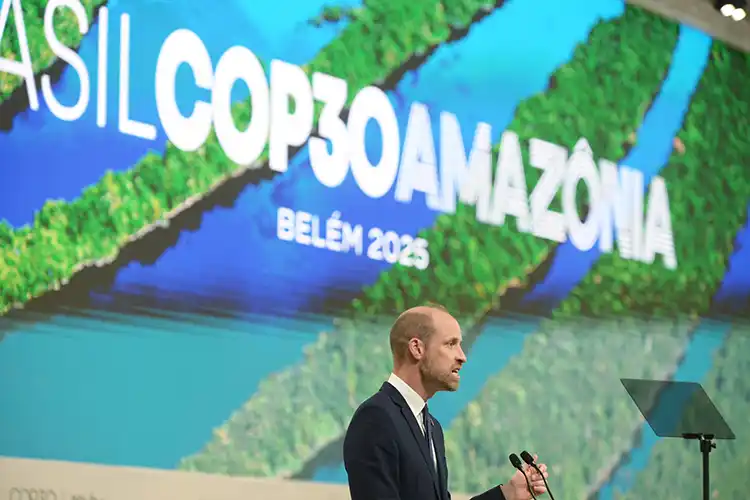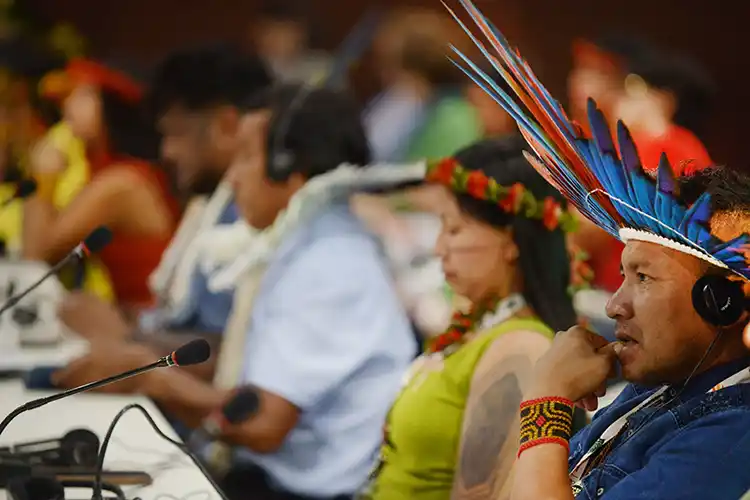
At COP30 in Belém, leaders spoke of a global mutirão – a collective effort to tackle climate change – but the summit fell short on commitments to fossil fuels, climate finance, and decisive action. Here’s what happened and why it matters
By
‘Mutirão’ is an interesting Brazilian word. It derives from the Indigenous Tupi-Guarani language mixed with Portuguese, and it means ‘collective effort’. A mutirão (mu-chi-ra-oo) traditionally happens when a community works together for a common goal, such as in construction or agriculture. At the opening of COP30, significantly held near the mouth of the Amazon River, Brazilian president Luiz Inácio Lula da Silva explicitly called for a mutirão to implement climate commitments through collective action, in the common interest of all human beings, present and future. It didn’t exactly go that way.
The 30th UN Conference on Climate Change ended on Saturday in Belém with an agreement as lukewarm as the final applause that welcomed it. It represents a step forward and a half-step back. In a nutshell, countries agreed to ‘at least triple’ adaptation finance by 2035, but with a lack of clarity on precise financial contributions and sources. A new ‘Just Transition Mechanism’ was established to support fairness in moving to a green economy. But the conference completely failed in its original goal of setting a timetable to achieve such a transition.
With the resounding absence of the United States, climate negotiators didn’t agree on a roadmap for the phaseout of fossil fuels. Interestingly enough, it took 28 years of these fortnight-long consultations to ever mention fossil fuels in the final document (it happened at COP28, two years ago in Dubai). It’s like a surreal novel of an infinite court trial where the name of the proven murderer is never uttered. In the case of climate, the culprit (carbon dioxide) was publicly named in 1896 by the Swedish scientist Svante Arrhenius, who defined and calculated its radiation-trapping properties in the atmosphere. In Belém, all major petrostates refused to mention fossil fuels.

Across three decades, the world’s climate pow-wow has produced two major accomplishments: the Kyoto Protocol (COP3, 1997) and the Paris Agreement (COP21, 2015). The former has been only partially implemented, and the latter – which aims to limit the temperature increase to 1.5°C through voluntary and non-enforceable commitments – has substantially failed. As of September 2025, global temperatures are estimated to be around 1.51°C above pre-industrial levels, based on a 12-month average. It is true that scientists take only long-term averages into consideration, but, while 2025 won’t probably be the hottest on record, 2024 was, and 2023 the second hottest. In the meantime, global emissions have been rising unabated. Under the modest NDCs (nationally determined contributions) presented by the world’s countries at COP30, the planet is still on track for a 2.6°C warming.
Simon Stiell, the UNFCCC secretary general, considered COP30 a success for multilateralism. ‘194 countries have said in one voice that the Paris Agreement is working, and resolved to make it go further and faster,’ he said. On the contrary, I’m afraid that the same old conflicting interests are at play here. Petrostates demand the right to keep drilling. Developing countries insist they cannot leapfrog into green development without financial support. Wealthy countries issue grand speeches but hesitate when the bill arrives.
Maybe the half-step forward of COP30 relies on the voluntary commitments that have been pledged. A major voluntary finance mechanism for forest conservation was announced, with 53 countries pledging $5.5billion. Over 80 nations backed a voluntary initiative to begin discussions on a roadmap for transitioning away from fossil fuels. The Brazilian presidency promised to keep pushing countries to raise their NDCs before COP31 in Turkey. The Netherlands and Colombia announced an international conference next year for plotting the long-awaited roadmap. So much for multilateralism.
What is lost in the diplomatic fog is the spirit of a true mutirão: a shared understanding that collective survival requires collective effort, not just rhetoric. The Amazon, where COP30 took place, is approaching a tipping point beyond which large sections may turn to savannah. Small island nations are already losing land to the sea. Floods, droughts and wildfires are on the rise all over the globe.
A mutirão begins when a community realises it has no choice but to act together – when the harvest must come in, or the house must be raised before the rains. Climate change is now well past that point. The world does not lack roadmaps, metrics, agreements, goals or scientific warnings. It lacks what the Tupi-Guarani people described long ago: a collective effort in practice.





